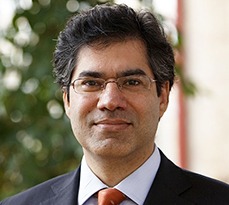An article in the Stanford Social Innovation Review by Clare Woodcraft and Dr Kamal Munir of the Centre for Strategic Philanthropy at Cambridge Judge Business School outlines findings of a pandemic-induced shift in the Global North-Global South philanthropic power balance.

The COVID-19 (coronavirus) pandemic has “dramatically disrupted” the relationship between philanthropic organisations in the Global North and Global South, allowing the implementation of more local capability and knowledge in the South, says an article in Stanford Social Innovation Review by the leaders of the Centre for Strategic Philanthropy (CSP) at Cambridge Judge Business School.
The devastating nature of the pandemic has resulted in large foundations in the Global North paying increased attention and diverting much funding to the health sector, which has highlighted the historically unequal power dynamic between the North and South, says the article by Clare Woodcraft, Executive Director of the CSP, and Dr Kamal Munir, Academic Director of the CSP and Reader in Strategy & Policy at Cambridge Judge.
“Yet, through this shift, many grantees have found their voice; they’ve demanded the faster disbursement of grants and the ability to use funds according to what they deem most pressing. Foundations, in turn, have deviated dramatically from traditional grant distribution practices developed in the North – where grantees must endure lengthy application processes, wait months to receive grants, and apply them in specified ways – and instead responded to the urgent needs of frontline fieldworkers based in the Global South.”

The article reflects the recent study by the Centre of 24 philanthropic organisations in the Global South, particularly the Middle East, Africa, and South East Asia, which found a desire in the South “for faster decision-making that responds to locally defined needs, as well as less-restricted funding and more-efficient reporting requirements,” says the Stanford review article entitled “How COVID-19 is Shifting the North-South Philanthropic Power Dynamic”.
The article concludes by calling for Global South countries to take three key steps to attain true local potential: organisational capacity building, better regulation, and the digital transformation of organisations and shared platforms.


